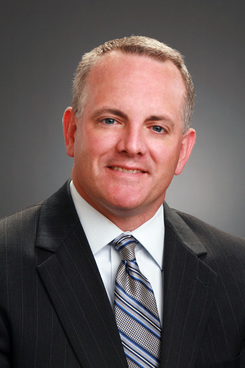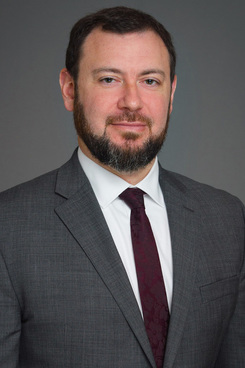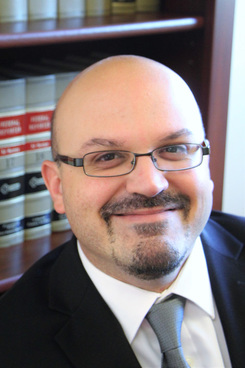A federal judge in Newark, New Jersey, set some ground rules in an ongoing battle between proponents of in-person court hearings and those who wish to appear remotely.
Motions by attorneys to conduct proceedings remotely in Newark Immigration Court are deemed granted if the judge hearing the case does not decide the motion 48 hours before the relevant hearing, U.S. District Judge John Michael Vazquez ruled in a suit by the New Jersey chapter of the American Immigration Lawyers Association.
Resistant to Change?
The ruling is a boon to immigration lawyers who say the court’s administration resists remote trial technology, which raises fears that returning to in-person hearings exposes them to risks of COVID-19 because of cramped court facilities in Newark’s Peter Rodino Federal Building.
 U.S. District Judge John Michael Vazquez of the District of New Jersey. Courtesy photo
U.S. District Judge John Michael Vazquez of the District of New Jersey. Courtesy photoVazquez said attorneys appearing before immigration judges in Newark must file requests for remote hearings 15 days before the hearing date.
Judges shall consider guidance from the Department of Justice’s Executive Office of Immigration Review and the Centers for Disease Control and Prevention.
Judges can deny motions if the attorney has been granted prior motions for remote hearings and has missed such hearings without good cause or has had technical difficulties impacting such hearings, if the hearing is contested and the judge feels the credibility of a witness must be evaluated in person, if there is an internet outage systemwide or specific to Newark that is not expected to be resolved before the hearing time, Vazquez wrote.
The order comes after Vazquez said on Feb. 3 that EOIR, the DOJ office that runs the immigration courts, violated a February 2021 stipulation requiring immigration judges to rule on remote hearing motions in a timely manner and to give an appropriate reason when denying such requests.
The order remains in effect as long as the declared national emergency related to COVID-19 remains in effect. The declaration of emergency is scheduled to expire May 11.
‘Choose Between Risking Their Lives’
 Akiva Shapiro of Gibson, Dunn & Crutcher. Courtesy photo
Akiva Shapiro of Gibson, Dunn & Crutcher. Courtesy photoThe immigration lawyers were represented by attorneys from Gibson, Dunn & Crutcher, which did the vast majority of its work pro bono.
“We are thrilled that New Jersey immigration attorneys and their vulnerable clients are once again assured access to remote immigration hearings. It’s unconscionable that the government was forcing immunocompromised individuals to choose between risking their lives and appearing in court,” said Akiva Shapiro of Gibson Dunn.
The U.S. Attorney’s Office for the District of New Jersey represented the EOIR. A spokesman for the office, Matthew Reilly, declined to comment on the ruling.
Jason Scott Camillo, a New Brunswick, New Jersey, immigration lawyer who is chair of the American Immigration Lawyers Association’s New Jersey chapter, was elated about the ruling.
“We feel great. We feel vindicated. We’re very happy that Judge Vazquez found and ruled that EOIR was, in fact, violating the stipulation and that we were right and that we should be protected,” Camillo said.
Adversaries Join Forces
 Jason Scott Camilo, a solo practitioner in New Brunswick, New Jersey. Courtesy photo
Jason Scott Camilo, a solo practitioner in New Brunswick, New Jersey. Courtesy photoCamillo said the ruling was novel since his members and lawyers for the Department of Immigration and Customs Enforcement, or ICE, who are typically adversaries in immigration proceedings, were on the same side of the case.
“It’s very rare for us to be on the same side as the ICE professionals. It’s a weird position and it’s because, frankly, EOIR was so obstinate about moving on any of these points,” Camillo said.
The AILA noted in court papers that some ICE attorneys who regularly appear in the Newark court are undergoing cancer treatment and are therefore at heightened risk of becoming seriously ill from COVID-19, Camillo said.
“That was one of the main sticking points that we had with [EOIR], and we’re very happy that Judge Vazquez ruled that they were also covered. We thought it was completely outrageous to have people with cancer not allowed to appear by WebEx,” Camillo said.
‘Refused to Delineate Any Factors’
Lawyers for EOIR argued that setting rules for the resolution of motions for remote proceedings would eliminate or reduce the discretion of the Newark judges and that Vazquez’s order should not apply to government attorneys because the plaintiffs do not represent the government in the case.
Vazquez said he had repeatedly inquired about factors informing the discretion to decide motions for remote hearings, but “did not receive any tangible information from defendants.”
“Thus, the court is frustrated by this objection because defendants refused to delineate any factors that an immigration judge considers in exercising discretion,” he said.
Vazquez also said that although the Department of Homeland Security is not a party to the case, the stipulation specifies that a representative for either party can file a motion for remote hearings.
Vazquez wrote, “Thus, the stipulation expressly covers government and nongovernment counsel.”












More Stories
Employers Beware: California Bill Could More than Double the Mandatory Paid Sick Leave Available to California Employees!
“Incidental” Versus “Direct” Third Party Beneficiaries Under Insurance Policies in Which a Party is Not an Additional Insured | California Construction Law Blog
Judge Calls Out “Human Rights Lawyers” Over Incompetence